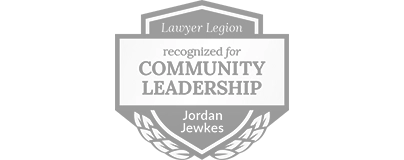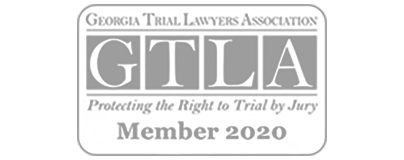Home | Glossary of Personal Injury Terms | Liability
Liability
In Georgia, individuals who suffer injuries due to another party’s actions have the right to seek compensation for their losses. However, navigating the complexities of liability is crucial for successfully pursuing a personal injury claim. This article explores the various facets of liability under Georgia tort laws. This includes negligence, strict liability, intentional torts, and vicarious liability, as well as the types of damages that may be awarded.
Proving Liability — The Foundation of Personal Injury Claims
To establish liability, the injured party must demonstrate that the other party holds legal responsibility for the damages incurred. This responsibility can arise from acts of negligence, intentional misconduct, or other wrongful actions. Most personal injury cases stem from acts of negligence.
Key Elements of Negligence
The following must be established to prove negligence:
- Duty of Care. The party in question was legally required to take appropriate precautions to avoid causing harm.
- Breach of Duty. The responsible party failed to uphold this duty, acting in a manner that deviated from what an average person would do in similar circumstances.
- Causation. There must be a direct link between the injuries sustained by the victim and the breach of duty.
- Damages. The injured party must have experienced quantifiable losses as a result of the breach.
Common scenarios involving negligence include car accidents, slip and falls, medical malpractice, and incidents related to premises liability.
Strict Liability — Accountability Without Fault
In certain situations, a party can be held liable for injuries without the need to prove negligence or intent. This concept, known as strict liability, applies primarily to cases involving inherently dangerous activities or defective products.
For instance, manufacturers may be held strictly liable for injuries caused by defective products, regardless of whether they exercised due care during production. In Georgia, dog owners may also be held strictly liable for bites that occur if specific criteria are met, such as proving that the dog was dangerous and unprovoked.
Intentional Torts — Deliberate Harm
Intentional torts occur when an individual deliberately acts to inflict harm on another. These cases can include actions such as assault, battery, fraud, and other criminal acts. Unlike negligence cases, the intent to cause injury plays a pivotal role in establishing liability. Notably, even if a perpetrator is not convicted in a criminal court, they may still be found liable in a civil suit based on the same evidence.
Vicarious Liability — Holding Employers Accountable
While typically only the individual who caused the injury is liable, the doctrine of vicarious liability allows for the imposition of liability on an employer for the actions of its employees. For example, if a delivery driver causes an accident while on the job, the employer may also be held responsible for the resulting damages. This principle emphasizes the importance of supervision and control within the employer-employee relationship.
Types of Damages in Personal Injury Claims
An injured individual can seek compensation for various types of damages when a party is deemed liable.
Economic Damages
These represent tangible financial losses and may include:
- Medical expenses (hospital bills, therapy, rehabilitation)
- Lost wages (including benefits and overtime)
- Out-of-pocket expenses (transportation, caregiving)
- Loss of future earning capacity
Non-Economic Damages
These encompass more subjective losses, including:
- Pain and suffering (both physical and emotional)
- Disfigurement or scarring
- Loss of enjoyment and quality of life
- Long-term disabilities
In exceptional circumstances, a court may award punitive damages to punish a defendant for particularly egregious behavior, requiring proof of gross negligence or malice.

GEORGIA PERSONAL INJURY LAWYER NEAR ME
Schedule a Free Consultation with a South Atlanta Personal Injury Lawyer
If you believe you have a valid personal injury claim, it is essential to consult with a knowledgeable attorney who can assess your case and guide you through the legal process. The Jewkes Firm’s experienced South Atlanta personal injury lawyers are committed to helping clients recover the compensation they deserve.
For a free consultation, please contact us at (770) 771-5130. Let us help you navigate the complexities of your personal injury case so you can focus on healing and recovery.
GET A FREE CASE REVIEW
PRACTICE AREAS
Frequently Asked Questions?
Do I need a personal injury attorney?
The Jewkes Firm is well-versed in effectively challenging major insurance companies on your behalf to secure the highest settlement permissible by law. Our primary objective is to ensure your optimal recovery. It is only after this point that we assess the worth of your case.
What is the deadline for filing an injury case in Georgia?
The timeframe for filing an injury case, also known as the statute of limitations, can vary significantly. As per OCGA §9-3-33, you are granted a two-year period from the date of your injuries or the passing of a family member to initiate your personal injury claim.
What is the cost to hire a personal injury attorney?
There is no upfront cost associated with hiring a personal injury lawyer. Our fees are based on a percentage of your settlement, meaning you only pay if we successfully recover compensation. Our top priority is ensuring your well-being and helping you return to your normal life.
What damages can you recover from a personal injury?
A personal injury lawyer aims to establish negligence and seek restitution for the harm caused by the liable party. Additionally, you may be entitled to compensation for funeral costs, medical expenses, and income lost if you are a family member of someone who died as a result of an injury.
Free Case Evaluation











